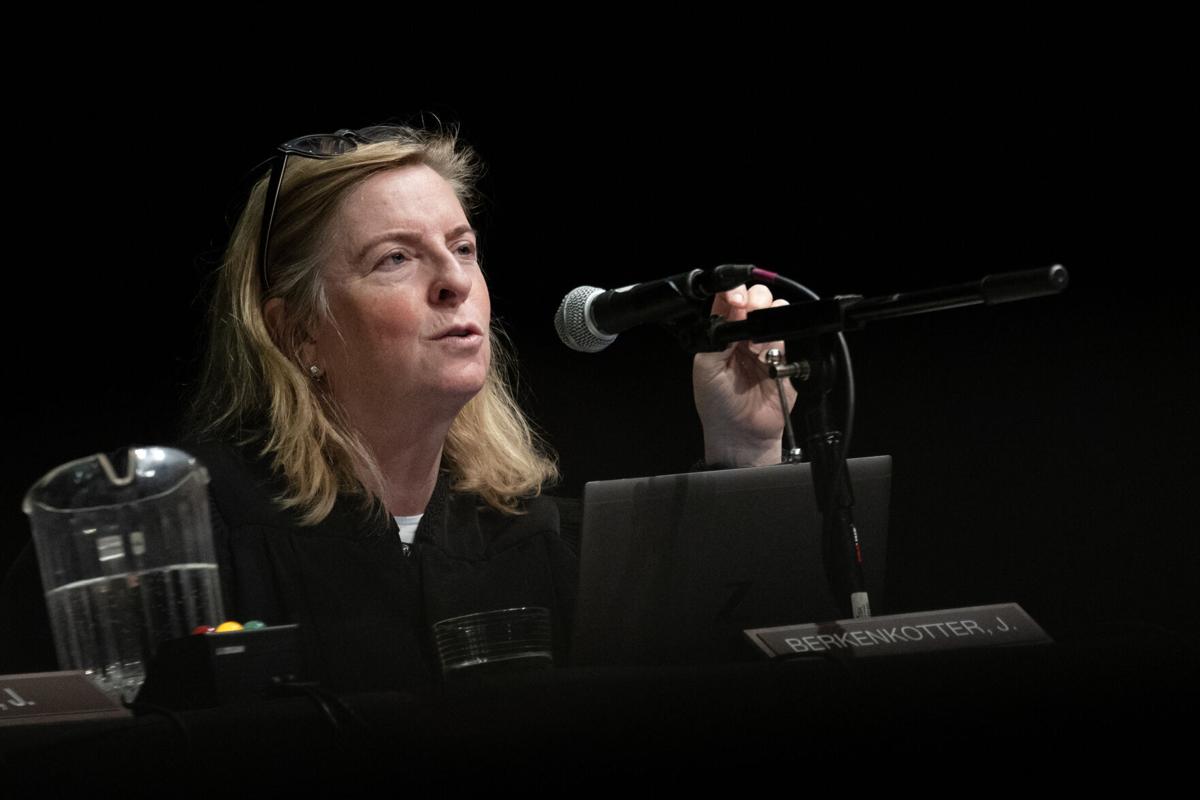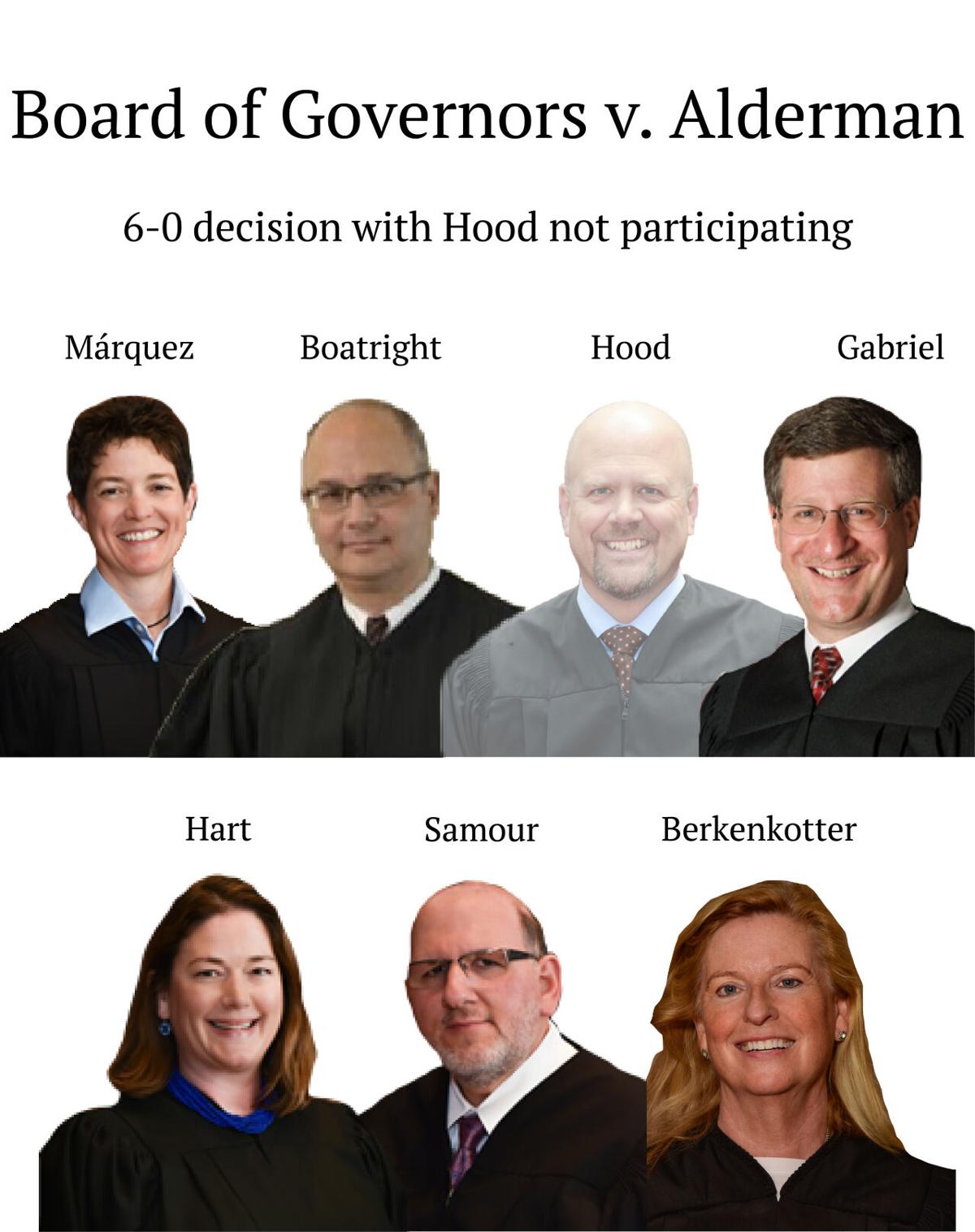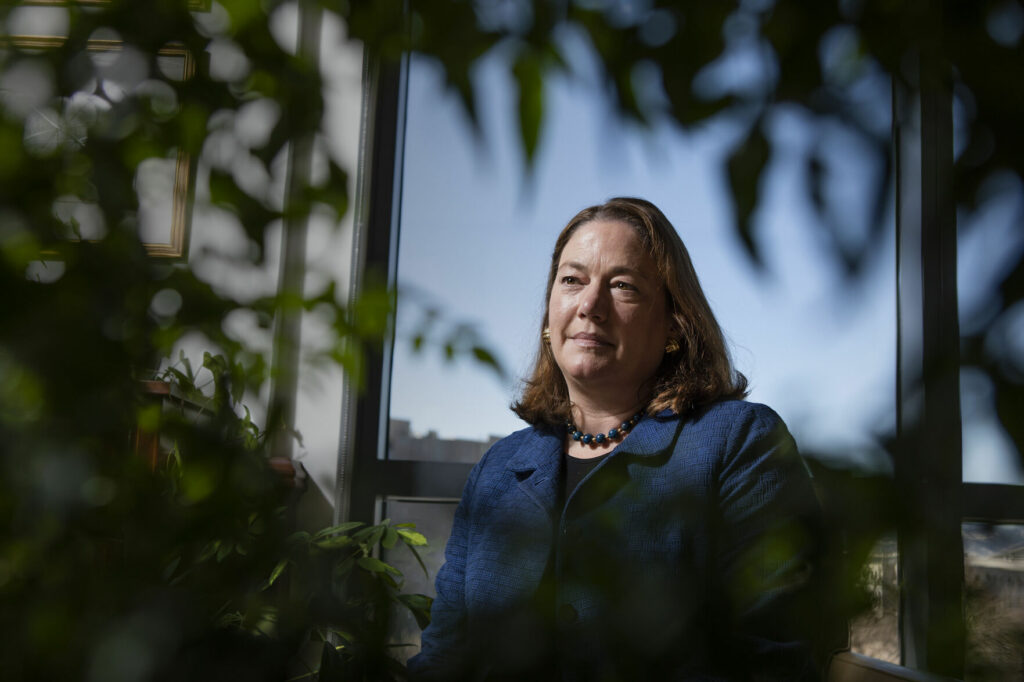Colorado Supreme Court ends lawsuit seeking refunds for CSU campus closure

Colorado Supreme Court justice Maria E. Berkenkotter asks a question during oral arguments of the Arnold R. Martinez v The People of the State of Colorado case during Courts in the Community on Thursday, Oct. 26, 2023, at Gateway High School in Aurora, Colo. (Timothy Hurst/Denver Gazette)
Timothy Hurst
Colorado State University students may not claim their school unjustly enriched itself when it temporarily closed its physical campus during the COVID-19 pandemic and did not provide refunds, the Colorado Supreme Court ruled on Monday.
On behalf of all people who paid student tuition and fees during the spring 2020 semester, Renee Alderman sued CSU alleging the school breached its contract with students and unjustly enriched itself. Specifically, she claimed CSU “saved significant sums of money” by curtailing in-person services during the early pandemic while holding onto payments, including approximately $867 in general fees per student.
But the Supreme Court concluded the agreement that existed between CSU and its students remained intact, and a provision of that contract allowed the university to shutter its campus for pandemic-related reasons.

“Critically,” wrote Justice Maria E. Berkenkotter in the Feb. 24 opinion, “a contract does not fail merely because it does not provide all the services and protections to which a party claims they are entitled.”
In a statement, CSU said it is “pleased with the Supreme Court’s decision and remains proud of the efforts it took to support our students and employees which enabled the university to sustain its academic mission during a global pandemic.”
Igor Raykin, the attorney who represented Alderman, said CSU prevailed on a “technicality.” He reiterated his argument that the school should not have been able to retain student money for the period in which in-person services were curtailed.
“When you think about a private business, if I go out of business, for example,” Raykin said, “that doesn’t mean I get to keep all of the money that I have not earned. Yet, that is the result here.”
Other universities have settled similar cases for millions of dollars arising from the pandemic-era closures. The University of Colorado agreed to a $5 million settlement in 2023, in a case Raykin also litigated.
That same year, a three-judge panel of the Court of Appeals allowed Alderman’s lawsuit to proceed in part. All judges agreed a unique provision in Colorado law allowing CSU to “temporarily suspend” operations in response to “the prevalence of fatal diseases” authorized the campus closure. Because the “contract” between students and the school incorporated that law, Alderman could not allege that a breach occurred through the temporary suspension.
However, Judge David J. Richman, writing for himself and Judge JoAnn L. Vogt, believed Alderman’s unjust enrichment claim was still viable. Citing a rule that generally bars unjust enrichment claims when they deal with the “same subject matter” as a contract, the majority believed Alderman was entitled to an exception.
Even if CSU had the power to close its campus, “it does not necessarily follow that CSU had the right to retain the tuition and fees that plaintiff had paid pursuant to the contract,” Richman noted.
Judge Ted C. Tow III disagreed that an alternate route was open to Alderman for holding CSU liable and indicated he would have sided with the school altogether.

Colorado Court of Appeals Judge Ted C. Tow III asks a question to Assistant Attorney General Jaycey DeHoyos, not pictured, during oral arguments in the second of two Colorado Court of Appeals cases being held in the library of Conifer Senior High School as part of the Courts in the Community educational outreach program on Tuesday, May 16, 2023, in Conifer, Colo. (Timothy Hurst/Denver Gazette)
Timothy Hurst/Denver Gazette
Raykin, during oral arguments last year, pointed out the contractual provision permitting CSU to close its campus does not also state the school can retain student fees. But some justices were hesitant to say that the absence of a contractual term could give rise to a lawsuit.
“That seems to me you would be asking us to pretty substantially extend existing law to say there is a contract, it’s an enforceable contract, but it doesn’t include a term you wish was there,” said Justice Melissa Hart.
Ultimately, Berkenkotter wrote that unless a contract fails, a plaintiff cannot claim both breach of contract and unjust enrichment when the contract covers the same subject matter. In Alderman’s case, even though her breach of contract claim failed due to state law, the agreement between students and the university remained otherwise valid.
“Alderman’s argument is essentially that unjust enrichment should serve as a gap-filler provision to provide a remedy when a contract is silent about a desired term,” Berkenkotter wrote, adding there is no legal basis for that theory.
Justice William W. Hood III did not participate in the case. As is the Supreme Court’s practice, he did not disclose why he recused himself.
The case is Board of Governors v. Alderman.











